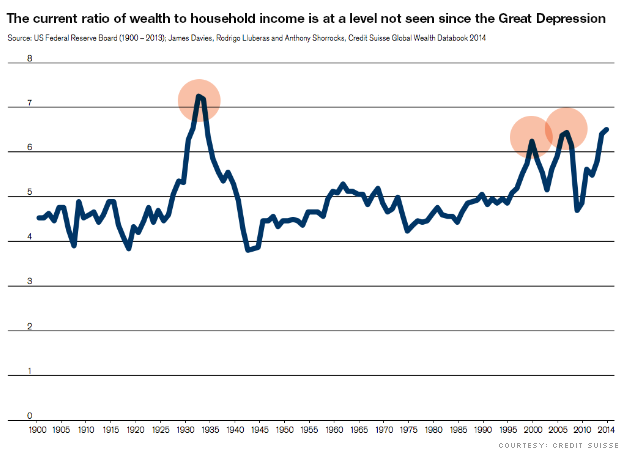Comments due by Oct. 11, 2014
For decades, people have been predicting how the rise of advanced computing and robotic technologies will affect our lives. On one side, there are warnings that robots will displace humans in the economy, destroying livelihoods, especially for low-skill workers. Others look forward to the vast economic opportunities that robots will present, claiming, for example, that they will improve productivity or take on undesirable jobs. The venture capitalist Peter Thiel, who recently
joined the debate, falls into the latter camp, asserting that robots will save us from a future of high prices and low wages.
Figuring out which side is right requires, first and foremost, an understanding of the six ways that humans have historically created value: through our legs, our fingers, our mouths, our brains, our smiles, and our minds. Our legs and other large muscles move things to where we need them to be, so our fingers can rearrange them into useful patterns. Our brains regulate routine activities, keeping the leg- and finger-work on track. Our mouths – indeed, our words, whether spoken or written – enable us to inform and entertain one another. Our smiles help us to connect with others, ensuring that we pull roughly in the same direction. Finally, our minds – our curiosity and creativity – identify and resolve important and interesting challenges.
Thiel, for his part, refutes the argument – often made by robot doomsayers – that the impact of artificial intelligence and advanced robotics on the labor force will mirror globalization’s impact on advanced-country workers. Globalization hurt lower-skill workers in places like the United States, as it enabled people from faraway countries to compete for the leg-and-finger positions in the global division of labor. Given that these new competitors demanded lower wages, they were the obvious choice for many companies.
According to Thiel, the key difference between this phenomenon and the rise of robots lies in consumption. Developing-country workers took advantage of the bargaining power that globalization afforded them to gain resources for their own consumption. Computers and robots, by contrast, do not consume anything except electricity, even as they complete leg, finger, and even brain activities faster and more efficiently than humans would.
Here, Thiel offers an example from his experience as CEO of PayPal. Instead of having humans scrutinize every item in every batch of 1,000,000 transactions for indications of fraud, PayPal’s computers can approve the obviously legitimate transactions, and pass on the 1,000 or so that could be fraudulent for thoughtful consideration by a human. One worker and a computer system can thus do what PayPal would have had to hire 1,000 workers to do a generation ago. Given that the computer system does not need things like food, that thousand-fold increase in productivity will redound entirely to the benefit of the middle class.
Put another way, globalization lowered the wages of low-skill advanced-country workers because others would perform their jobs more cheaply, and then consume the value that they had created. Computers mean that higher-skill workers – and the lower-skill workers who remain to oversee the large robotic factories and warehouses – can spend their time on more valuable activities, assisted by computers that demand little.
Thiel’s argument may be correct. But it is far from airtight.
In fact, Thiel seems to be running into the old diamonds-and-water paradox – water is essential, but costs nothing, whereas diamonds are virtually useless, but extremely expensive – albeit in a sophisticated and subtle way. The paradox exists because, in a market economy, the value of water is set not by the total usefulness of water (infinite) or by the average usefulness of water (very large), but by the marginal value of the last drop of water consumed (very low).
Similarly, the wages and salaries of low- and high-skill workers in the robot-computer economy of the future will not be determined by the (very high) productivity of the one lower-skill worker ensuring that all of the robots are in their places or the one high-skill worker reprogramming the software. Instead, compensation will reflect what workers outside the highly productive computer-robot economy are creating and earning.
The newly industrialized city of Manchester, which
horrified Friedrich Engels when he worked there in the 1840s, had the highest level of labor productivity the world had ever seen. But the factory workers’ wages were set not by their extraordinary productivity, but by what they would earn if they returned to the potato fields of pre-famine Ireland.
So the question is not whether robots and computers will make human labor in the goods, high-tech services, and information-producing sectors infinitely more productive. They will. What really matters is whether the jobs outside of the robot-computer economy – jobs involving people’s mouths, smiles, and minds – remain valuable and in high demand.
From 1850 to 1970 or so, rapid technological progress first triggered wage increases in line with productivity gains. Then came the protracted process of income-distribution equalization, as machines, installed to substitute for human legs, and fingers created more jobs in machine-minding, which used human brains and mouths, than it destroyed in sectors requiring routine muscle power or dexterity work. And rising real incomes increased leisure time, thereby boosting demand for smiles and the products of minds.
Will the same occur when machines take over routine brainwork? Maybe. But it is far from being a safe bet on which to rest an entire argument, as Thiel has.
(Bradford De Long)



